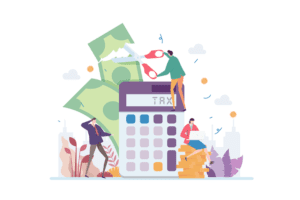Types of Bookkeeping Accounts Used To Organize Income and Expenses

This information allows you to make smart decisions for future growth and planning. It could result in improving processes or making purchasing decisions. The realm of advanced bookkeeping incorporates refined techniques that optimize financial tracking and assessment. Mastering these concepts ensures that companies wield robust tools for strategic decision-making and uphold financial integrity. If you’re like most modern business owners, odds are you didn’t become one so that you could practice professional-level bookkeeping.
What Are the Different Types of Bookkeeping Systems: A Comprehensive Overview
Different industries have different regulatory bodies that require specific standards for accounting practice. This means that they will adopt the type of accounting that aligns with the SEC guidelines. Small businesses often have tight budgets so it is important to focus on core accounting needs, avoiding complex and expensive accounting solutions.
- Accrual accounting reports revenues and expenses as they are earned and incurred through sales and purchases on credit and by using accounts receivable and accounts payable.
- Cash accounting reports revenues and expenses as they are received and paid through cash inflows and outflows.
- The single-entry bookkeeping system tracks cash sales and expenditures over a period of time.
- To better understand these concepts and how to apply them, take bookkeeping courses that will allow you to practice them.
- In contrast, the double-entry system records transactions as both a debit and a credit, providing a more comprehensive financial picture and is essential for larger enterprises.
Financial statements
This will help you to choose a path with promising career opportunities. By understanding your spending habits, you can make informed decisions and free up resources to allocate towards your financial goals. Whether you prefer physical folders or digital filing systems, ensure everything is clearly labeled and stored according to your categories.
- The size of your business will greatly influence the type of accounting you will choose because different businesses have different needs and complexities.
- This makes them convenient for very small businesses but too simplistic for enterprises.
- Accounting is also needed to pay accurate taxes to the Internal Revenue Service (IRS).
- Whether it’s updating your books or keeping in contact with your tax advisor, maintain your business’s financial records and business expenses.
- You may be hoping for the best and have a few college courses in your back pocket.
example of these types of bookkeeping accounts in action

It can also refer to the different recording techniques businesses can use. Bookkeeping is an essential part of your accounting process for a few reasons. When you keep transaction records updated, you can generate accurate financial reports that help measure business performance. Each one of these is designed to track specific types of business transactions. For example, there’s cash basis accounting and accrual basis accounting.
Financial statements are then prepared from these journals and ledgers and summarize the income and expenses of a business for a specific timeframe. Business transactions can be recorded by hand in a journal or an Excel spreadsheet. To make things easier, many companies opt to use bookkeeping software to keep track of their financial history.

Reasons Why Bookkeeping is Important for Your Business
Comprehensive and regular analysis of these documents allows companies to evaluate their economic status and make informed financial decisions. Small businesses must maintain an accurate record of purchases, sales, billing, and invoicing. Manual bookkeeping might suffice for businesses with a lower volume of transactions.
Cash Flow Statement
Building a strong audit trail is essential for financial transparency and simplifies future reviews. This involves documenting every transaction, whether it’s a purchase, a sale, or a transfer, as well as keeping the corresponding receipts and invoices. Regularly reviewing your records allows you to identify discrepancies or missing information early on, ensuring your audit trail remains accurate and complete. This could be anything from receipts and bills to medical documents or personal project notes. The same goes for using dedicated business credit cards instead of your personal cards, so you leave a clear spending trail.


This is because, through bookkeeping, the company is able to gather the critical information needed to paint a picture of how the company is doing. Accounting helps a business understand its financial position to be able to make informed decisions and manage risks. Business owners need to be familiar with various accounting types to know what accountant they should hire in any given situation. Be aware that just because someone is an accountant doesn’t mean that they are a good fit for the accounting task that you have in mind.
real and nominal types of bookkeeping accounts
Set your business up for success with our free small business tax calculator. Laura is a freelance writer specializing in small business, ecommerce and lifestyle content. As a small business owner, she is passionate about supporting other entrepreneurs and sharing information that will help there are two main types of bookkeeping them thrive. But if you have the time to dedicate to updating your books regularly, doing it on your own may be feasible. If your bookkeeper bills your customers or pays your vendors and employees, make sure you have proper checks and balances in place to mitigate the possibility of fraud.
Data entry can now happen as soon as you snap a photo of a receipt with your smartphone. And reconciliations happen almost in real time through daily bank feed maintenance, making the end-of-month closing process a snap. Now one bookkeeper can manage the bookkeeping for several businesses in fewer than eight hours a day. Whether it’s updating your books or keeping in contact with your tax adviser, maintain your business’s financial records and expenses throughout the year. That way, you can be well prepared when it’s time to file taxes with the IRS.

